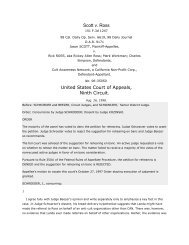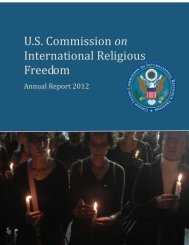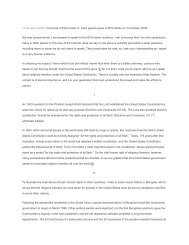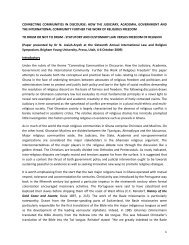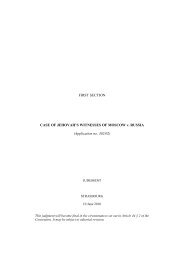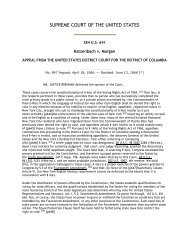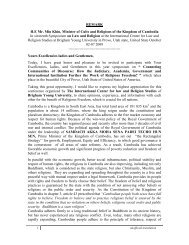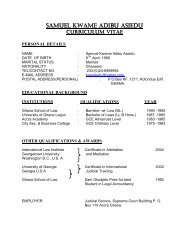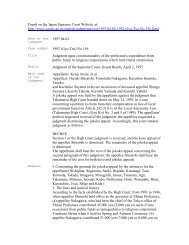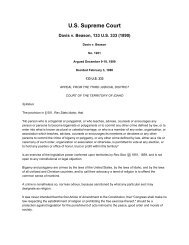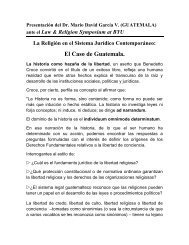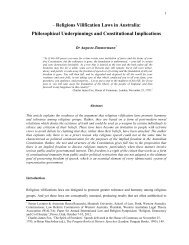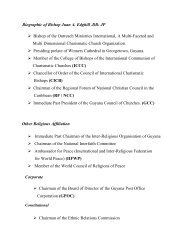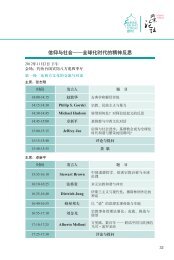Ruling (.pdf) - International Center for Law and Religion Studies
Ruling (.pdf) - International Center for Law and Religion Studies
Ruling (.pdf) - International Center for Law and Religion Studies
Create successful ePaper yourself
Turn your PDF publications into a flip-book with our unique Google optimized e-Paper software.
The Test <strong>for</strong> Issue Estoppel[4] The preconditions <strong>for</strong> the operation of issue estoppel are the following:1. that the same question has been decided in earlier proceedings;2. that the earlier judicial decision was final; <strong>and</strong>3. that the parties to that decision or their privies are the same inboth the proceedings.[5] If the party claiming the estoppel is able to establish these three elements, it is stillin the discretion of a Court or Tribunal whether to apply the doctrine in light of thecircumstances. (Danyluk v. Ainsworth Technologies Inc., [2001] 2 S.C.R. 460, para. 25)2008 HRTO 22 (CanLII)[6] In my view, Christian Horizons fails in its estoppel claim because the third elementof the test is not met. Ms. Heintz, the complainant in the present case was not a partyin the Parks case. Christian Horizons argues that the Commission was a party in Parks,<strong>and</strong> under the Code, the Commission has carriage of a complaint be<strong>for</strong>e the Tribunal. Itargues that it would be manifestly unfair <strong>for</strong> the Commission to use the fact of asubsequent complaint to relitigate an issue that was finally determined in a previouscomplaint.[7] A complainant is a separate legal party be<strong>for</strong>e the Tribunal. She has anindependent right to participate, <strong>and</strong> to take positions that may be different than theCommission. (See McKenzie Forest Products Inc. v. Tilberg (No. 1) (1998), 33C.H.R.R. D/258, restored on appeal in McKenzie Forest Products Inc. v. Ontario(Human Rights Commission) (2000), 48 O.R. (3d) 150 (O.C.A.) “Tilberg”). There is nosupport <strong>for</strong> the respondent’s position that unless or until the Commission decides towithdraw from a proceeding be<strong>for</strong>e the Tribunal, there is an identity or “privity” asbetween the Commission <strong>and</strong> the complainant. The case be<strong>for</strong>e me involves thecomplaint of Ms. Heintz. Ms. Heintz was not a party in the Parks case, <strong>and</strong> as a resultthe third element of the test is not met.[8] I would also note that in Parks, the Board of Inquiry found that Christian Horizonsdid not establish it fell within the scope of the special employment provisions. Christian90



